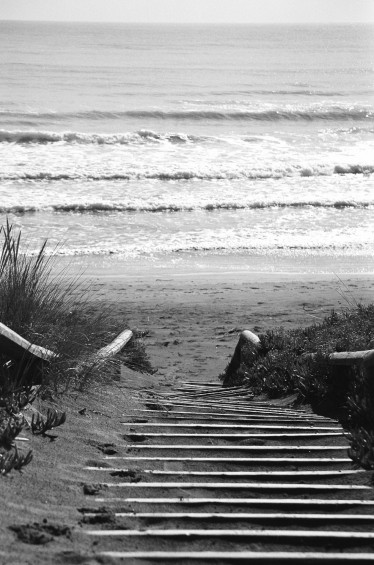Home » Environment
The Bus to Permaculture – by Rebecca May
Submitted by Charlotte on July 29, 2010 – 5:15 pm
On returning to New Zealand we feared we’d missed the bus. Was the kiwi Quarter Acre Paradise no more? Pieces of land bounding the city’s limits were now ‘lifestyle’ blocks and were equally unaffordable.
Two nomads contemplated digging up their rented front lawn while they carried on dreaming.
And then a curious thing happened. Call it what you might, but by a world-wide series of over-indulgences economies started collapsing.
One of the first things that hit us on returning to New Zealand was how many big cars there were on the road. Big Four Wheel Drives, big Sports cars, big Family cars. All of them big. While the price of fuel soared we wondered how everyone was coping; the fact was, they weren’t.
Was this Oil at its Peak?
Many people define Permaculture, a portmanteau of permanent and agriculture, as raised-bed, no-dig gardening. In fact, permaculture is, more simply, sustainable land use, design and looking at the whole system. It is ecological architecture. It is creating intentional, self-suffcient communities.
It was first practised by an Austrian back in the 60s, but developed further by Australians Bill Mollison and David Holmgren in the 1970s, right about the first time the world was having its first oil related shock.
Oh yes, I remember the 70s. Serialised by green tartan flares appearing on several pages of the family photo album and my dad buying a bike. From a kids point of view it was great, no one in my neighbourhood laughed at my flares because they’d all previously worn them and I got to have a bike six days of the week. But despite things being tough, my folks knew stuff. Mum bottled and preserved, she sewed, she baked. My dad fixed the car. Recycling, as a concept, hadn’t reached my family, but we were busy at it. It was called Kiwi Ingenuity.
Permaculture, as a worldwide movement, was miles away. But that was where my path was leading me, to that packet arriving in my letterbox some 30 odd years later.
With the help of my folks and the coinciding credit crunch we were able to buy a slightly more modern kiwi 500m patch not far from the beach. The house and garden decor was straight out of the 60s- in fact, it looked like the previous owners may have won second prize in a carpet raffle about the same time I first got to wear those green tartan flares.
It was ripe for permaculture design. We were happy to swap our ideas of 5 acres in the countryside for 500m of suburbia because this was no ordinary suburb. It was a community- somewhere where my neighbours would become my friends and family, somewhere where we could swap eggs for peaches over the fence.
It was home.
Months earlier I had met an inspired and energetic woman at a vegetarian event. She was collecting names and addresses of folk interested in subscribing to her community’s newsletter. Her community would eventually become our seaside community and some time later I would take over writing the very newsletter that introduced us!
The bus to permaculture was just pulling up to my stop. My own transition from being nomad to a member of a community was happening. Where as before I cared, now I was going to get involved. Permaculture is as much a part of Transition as Peak Oil is to Climate Change. Our little 500m patch was in the middle of something much bigger, and we are going to be a part of it
GD Star Rating
loading...
loading...
GD Star Rating
loading...
loading...
Tags: Permaculture




Voices of our community